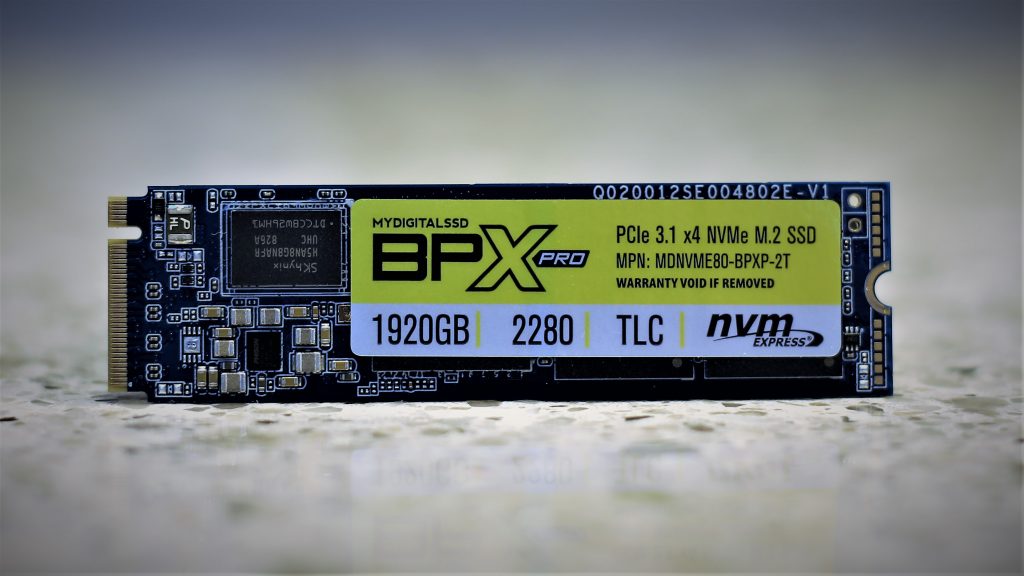Unless you really dig into SSD technology and the inner workings of a SSD, many are probably totally how similar many SSDs really are. In fact, when the SSD just started breaking out so many years ago, it wouldn’t be unusual for two SSDs to be nothing more than a different brand sticker. Absolutely true. One manufacturer would successfully market an SSD and another would purchase these, rebrand and market them as their own, save of course for minor firmware variations of course.
Today, it is not so much different and, as odd as it may sound, this is a good thing for a manufacturer. Given exception to Samsung, the current SSD industry is very reliant on SSD controller manufacturers to include Phison, SMI and Marvel, at least at the consumer level. Samsung is self-reliant. They are a monster in so many tech industries and Samsung holds their IP (intellectual property) close to the heart, marketing their own SSDs with Samsung NVMe controller, NAND flash memory and cache. Third party manufacturers rely on the NVMe controller, most up-to-date memory and third-party cache… and rarely do we see Samsung components within. For the most part, so many rely on companies such as Avant Technologies to put together their SSD for their sale. Enter the MyDigitalSSD BPX Pro.
Now… we are not saying for a minute the Avant Technologies manufactures MyDigitalSSD SSDs. This relationship was only presented for an understanding and who MyDigitalSSD might be using for their SSD composition is strictly confidential. For all we know, they may be assembling SSDs themselves. The picture we wanted to draw, however, is that today’s SSDs can be very similar, if not exactly the same containing the same controller, memory and cache….with even the controller company maintaining firmware and firmware updates. This is really good because this allows a knowledgeable consumer to shop for the best price and best warranty for the exact same SSD that may be significantly higher elsewhere.
MYDIGITALSSD BPXPRO NVME SSD FEATURE SET
The MyDigitalSSD BPX Pro NVMe SSD is a 2280 (80mm) M.2 PCIe 3.1 X4 (4 lane) NVMe 1.3 SSD and is available in capacities of 240GB, 480GB, 960GB and the SSD we are reviewing today which is a 1920GB capacity. Looking at the MyDigitalSSD website, we can see pricing of $54.99 (240GB), $99.99 (480GB), $189.99 (960GB) and $419.99 (1920GB). Performance is listed at 3.4GB/s read and 3.1GB/s write, security features include AES-256, TCG Opal, and TCG Pyrite Encryption Support, and this SSD include a five-year limited warranty. Check Amazon pricing now.
For those who want to dig into this drives features, it has end-to-end data protection, is overprovisioned for performance and drive endurance, has thermal throttling, SmartECC, Static and Dynamic Wear leveling and Bad Block Management.
BPXPRO COMPONENTS
The MyDigitalSSD BPX Pro contains the latest and greatest Phison PS5012-E12 8-channel NVMe controller, Toshiba BiCS3 TLC NAND flash memory and SKHynix DRAM cache memory.
Stepping back to what seems to have become so common these days, this SSD is a two sided SSD which has two 512GB BiCS3 memory chips and a SKHynix DRAM IC on each side.
This SSD is listed as a 1920GB SSD, vice what adds up to be 2048GB as might normally be calculated by RAW NAND flash memory; this accounts for over-provisioning. When we format the SSD, however, the total available storage space available to the user is only 1788GB.
CRYSTAL DISK INFO VER. 7.5.0
Crystal Disk Info is a great tool for displaying the characteristics and health of storage devices. It displays everything from temperatures, the number of hours the device has been powered, and even to the extent of informing you of the firmware of the device.
This CrystalDiskInfo result confirms that our SSD is 1920GB, PCIe 3.0 x4 and NVMe 1.3 compatible.
 The SSD Review The Worlds Dedicated SSD Education and Review Resource |
The SSD Review The Worlds Dedicated SSD Education and Review Resource | 


“This SSD is listed as a 1920GB SSD, vice what adds up to be 2048GB as might normally be calculated by RAW NAND flash memory; this accounts for over-provisioning. When we format the SSD, however, the total available storage space available to the user is only 1788GB. ”
Sigh. It’s just GB versus GiB. You guys should know better.